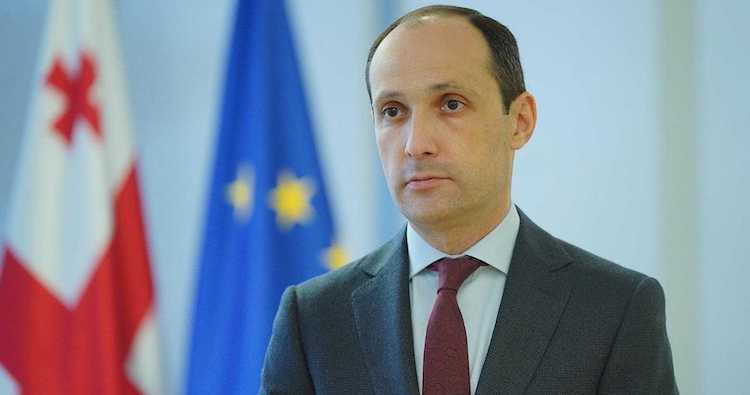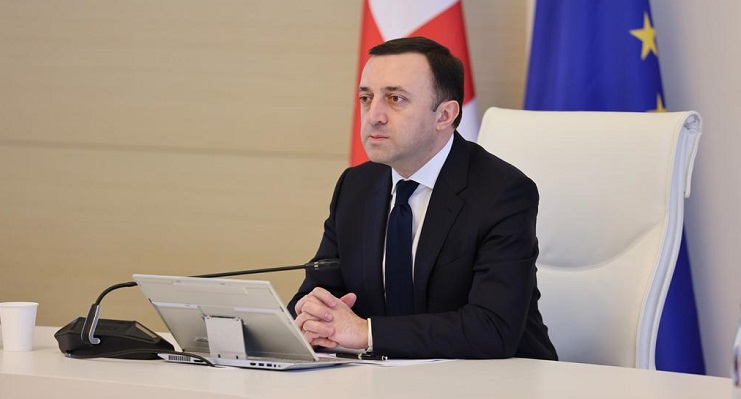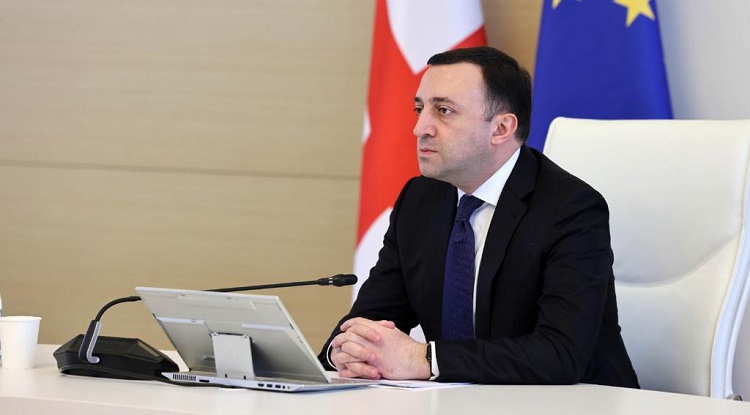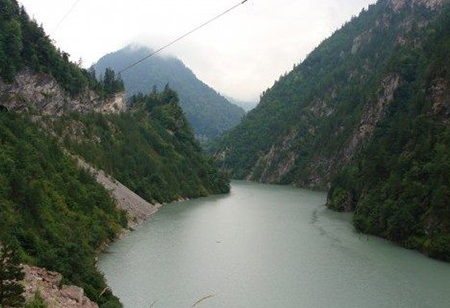Georgian PM: Anaklia deep sea port project to be “exemplary” in Black Sea basin
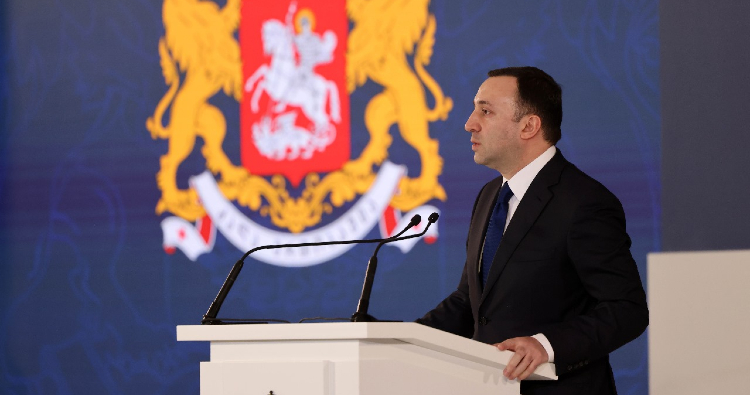
He said he had brought the project, which represents a “Georgian initiative”, as one of the “flagship projects” to Brussels in 2021, with Azerbaijan, Romania and Hungary joining the effort, and noted the project was in an “active phase” and had “full support” from the European Union. Photo: PM's press office
Georgian Prime Minister Irakli Garibashvili on Monday said the Anaklia deep sea port project, earmarked to be built in Georgia’s Black Sea town to ensure increased logistical capability between Asia and Europe, would be “one of the exemplary in the entire Black Sea basin”.
Garibashvili said the construction of the port was scheduled to start next year and hand the Government a 51 percent share in the facility, with the rest used as the obligation of the investor to attract appropriate investments.
He said he had brought the project, which represents a “Georgian initiative”, as one of the “flagship projects” to Brussels in 2021, with Azerbaijan, Romania and Hungary joining the effort, and noted the project was in an “active phase” and had “full support” from the European Union.
We are already actively working on the development of the port - we have moved to the second stage, the selection process is actively underway, [and] two companies, two giant companies have been selected. The selection process will be completed in the next few months, and after that we will start construction”, the PM added.
The official also mentioned his Government was working on the development of four large-capacity hydropower plants, including the Khudoni plant in the country’s north-western mountainous region of Svaneti, and noted a “modified form” of the project would have a “minimal effect” on the environment and the region.
Garibashvili said the project had been “sold off” in 2012 and was “bought back” by the new Government, and added it was of “great national importance”.
He added development works were also ongoing for the Neskra hydropower plant in Svaneti, with the planned construction works involving a combined cycle, modern thermal power station with a capacity of 350-430 MW, the largest in Georgia.
Now we are [also] actively working on the use of renewable energy. Today we signed 245 contracts. The estimated total installed capacity of the potential power plants will be over 3,000 MW, with an estimated output of approximately 13 billion kWh. This, of course, involves the investment of several billion dollars”, the PM noted.
The Government head added his office had held “active” negotiations with the International Monetary Fund, resulting in the introduction of a new Contracts for Difference scheme and the first auction of 300 MW of installed capacity.
He added 27 winning companies had been identified, with the total output of their projected facilities at 1,100 billion kWh.
 Tweet
Tweet  Share
Share

